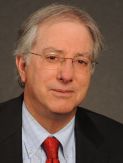Ambassador Dennis Ross: Balancing the Needs of the Immediate and the Enduring
 Over the past few months, headlines in U.S. newspapers have captured our attention with claims like: “Susan Rice’s ‘Combative’ Tone Damaged Relations with Israel,” and “Benjamin Netanyahu Further Damages U.S.-Israel Relations.” Clashing personalities seem to be the driving forces in U.S.-Israel relations, clashes that are likely to lead to yet another round of disappointments in the Middle East Peace Process—as much as there is one in 2016—nearly 50 years after the Six Days War and the establishment of the Occupied Territories. This is the world Ambassador Dennis Ross has inhabited, has sought and seeks to mold, and within which he has gained respect across partisan and sectarian lines.
Over the past few months, headlines in U.S. newspapers have captured our attention with claims like: “Susan Rice’s ‘Combative’ Tone Damaged Relations with Israel,” and “Benjamin Netanyahu Further Damages U.S.-Israel Relations.” Clashing personalities seem to be the driving forces in U.S.-Israel relations, clashes that are likely to lead to yet another round of disappointments in the Middle East Peace Process—as much as there is one in 2016—nearly 50 years after the Six Days War and the establishment of the Occupied Territories. This is the world Ambassador Dennis Ross has inhabited, has sought and seeks to mold, and within which he has gained respect across partisan and sectarian lines.
Relationships between countries are often referred to, as I referred to them, “U.S.-Israel relations;” however, a careful study of foreign policies reveals that those country-level policies are made by people, and ultimately, a very small set of individuals. The characteristics of those individuals (e.g., rational, arrogant, cynical, optimistic, compromising, uncompromising, etc.) have definite and measurable impacts on issues like: the actualization, length and progress of negotiations between parties—enemies and friends alike; the wording of accords; and the state of normalized relations between countries. These actions might also lead to policy-level activities: selling specific weapons systems (or not); providing specific development grants or loans (or not); sharing specific pieces of intelligence (or not). These impacts, from engaging in dialogue to providing assistance, are important parts of day-to-day foreign affairs and relatively short-term political outcomes. Ambassador Ross’s books and presentations provide a rich, complex look inside these inner workings, from the details of a specific agreement, to a decades-long review of, for example, U.S. presidents and their interactions with their Israeli counterparts. However, Ambassador Ross himself, as a unit of analysis, gives us another glimpse into the workings of U.S. (and other countries’, for that matter) foreign policy, a glimpse of continuity beneath the stormy, newsworthy seas mentioned.
As his biography makes clear, Ross has worked in administrations across the political and temperamental spectra: Ronald Reagan, George H.W. Bush, Bill Clinton, and Barack Obama. On the surface, their differences couldn’t be more apparent. However, it says something important that a skilled diplomat is appreciated by such a diversity of leaders. I believe that “something” is this: regardless of the particular president or secretary of state, U.S. national interests (and again, most countries’ interests) have remained, and will continue to remain, relatively stable over time. In the U.S.’s case, one could argue that this stability reaches back as far as the immediate post-WWII era. An in-depth look at these consistencies would take more than a few pages to describe, but we can focus on some fundamentals. Whatever the nature of the administration, is it likely that that administration, let alone any ambassador or negotiator representing the United States and that administration, would be able to radically shift U.S. policy in any of the following areas?
- Nuclear weapons; allies/alliances (defense);
- Force deployment around the world;
- Economic interactions and trade agreements;
- Its concerns about energy resources—amounts and access;
- The role and strength of the dollar as a world reserve currency;
- The nature and processes of major international institutions in which the U.S. plays a major role (e.g. United Nations or the International Monetary Fund);
- Its general hegemonic status.
The short answer is, of course, no. This is the other world Dennis Ross has inhabited, has sought and seeks to mold, and within which he has gained respect across partisan and sectarian lines.
Ambassador Ross has had to work within institutions while promoting incremental change. He has worked for substantive change, while respecting and recognizing the fundamental interests that simply cannot be changed. He has been a tireless advocate for a more peaceful world, negotiating with (and for) political actors who don’t necessarily share that same goal, or at least don’t prioritize their interests in the same way Ross prioritizes his. Surviving in such an environment is difficult. Not only has Ambassador Ross survived, he has thrived.
Ambassador Dennis Ross has had a long and distinguished career in both academia and the real world of global politics. To become a widely recognized authority in both worlds is an achievement few ever attain; this achievement makes his commentary even more noteworthy than it would have been had he only had a decades-long career in public service. His critical, analytical approach to the world of politics is a rare and under-recognized treasure. We would all be much better off if more actors in the political world adopted his approach.